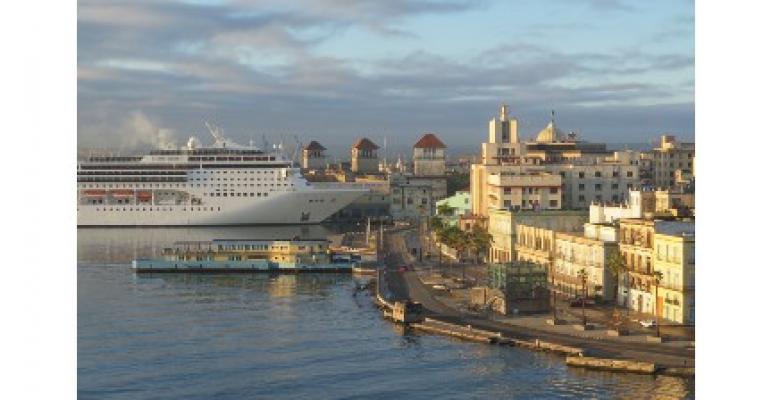This opens Carnival Corp., Royal Caribbean Group, MSC Cruises and Norwegian Cruise Line Holdings to potentially heavy damages to be determined in a jury trial, set for May 23 in Miami. Any of the defendants could appeal the decision.
US District Judge Beth Bloom in a Monday ruling largely sided with Havana Docks Corp., which holds a US-certified claim to a terminal and piers that were nationalized after the 1959 Cuban revolution. In 2019, Havana Docks sued the four cruise companies under Title III of the Helms-Burton or Libertad Act, which allows US nationals to seek compensation for property confiscated by Cuba's Communist government.
The defendants' arguments
In an omnibus motion for summary judgment, Carnival, Royal Caribbean, MSC and NCLH contended they used the terminal as a necessary part of lawful travel — that they were providing the condoned educational 'people-to-people' trips — and there was no evidence they acted with the requisite knowledge and intent of trafficking. They also argued Havana Docks never owned the cruise terminal but held a concession to operate a cargo business, and said the plaintiff can't make a claim under the law because it's not a US national.
Trafficking
In her 169-page ruling, Bloom rejected those arguments. She said the lines 'earned hundreds of millions of dollars for their trips to Cuba, and they paid Cuban entities tens of millions of dollars to use the terminal and operate shore excursions.' The contracts with Cuban entities constitute trafficking in that the lines entered into agreements with parties that managed, used or benefited from the terminal.
The judge also said the defendants continued using the terminal after gaining actual knowledge of Havana Docks' certified claim and this is 'enough to establish liability under the Libertad Act.'
Bloom dismissed the cruise lines' contention that Havana Docks doesn't qualify because its principal is domiciled in the UK. The judge found that Havana Docks, with its office and management in Kentucky, qualifies under the law and had demonstrated it owns a claim to confiscated property.
Bloom determined it didn't matter if Havana Docks only had a concession to operate the terminal and piers. The Libertad Act includes leasehold property. 'The fact that Havana Docks managed, operated and maintained the terminal, and then had to return the terminal to the Cuban government after a period of time, is consistent with a leasehold interest,' she said.
And just because the US promulgated licenses for travel to Cuba and executive branch officials including the President encouraged cruise lines to do so does not automatically immunize them from liability, Bloom said, if they engaged in statutorily prohibited tourism.
Questionable excursions
The excursions offered by the lines — all contracted with Cuban government-owned tour operators — did not afford genuine people-to-people exchanges, in her view. Examples cited included a Tropicana Cabaret excursion and other nightlife offerings, touring in vintage cars, a cocktail-making class, sightseeing and beach visits.
Bloom said the evidence didn't establish that excursion participants had a 'full-time schedule of activities intended to enhance contact with the Cuban people, support civil society in Cuba or promote the Cuban people's independence from Cuban authorities,' consistent with the US intent behind allowing certain types of travel. Nor did lines ensure their passengers participated in these programs.
The fact that lines purchased their tours from 'tourism excursion provider[s] is powerful, additional evidence' they were engaging in conventional tourism, according to Bloom.
'Lawful travel included proper people-to-people travel,' the judge said, not expressly prohibited tourism.
Jury trial or settle?
'With Judge Bloom’s ruling, the four cruise lines are nearing a binary choice — accept a jury trial or negotiate a settlement,' said John Kavulich, president of the US-Cuba Trade and Economic Council, in a blog post. 'As the plaintiffs seem to be seeking compensation (potentially US$100 million US$400 million) based upon what the Libertad Act permits, the four cruise lines will determine if a decision by a jury could be more costly than using the Libertad Act formulas to calculate what is owed to the plaintiffs.
'Key to remember,' Kavulich noted, 'the jury will be residents of the Miami, Florida, area, and will certainly include individuals of Cuban descent.'
Update: Carnival Corp., NCLH and MSC Cruises had no comment and Royal Caribbean did not immediately respond when invited to comment.
See also 'Analysis of US court's decision on Cuba cruises to Havana,' a commentary by attorney Robert Kritzman
Copyright © 2024. All rights reserved. Seatrade, a trading name of Informa Markets (UK) Limited.
Add Seatrade Cruise News to your Google News feed.  |

